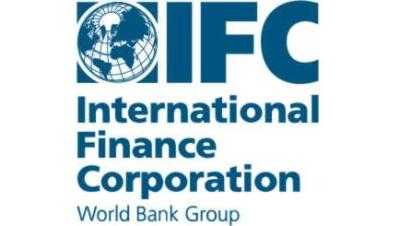WASHINGTON, DC, U.S. — IFC, a member of the World Bank Group, and Nespresso, with support from the BioCarbon Fund Initiative for Sustainable Forest Landscapes, will help coffee farmers in Ethiopia and Kenya get needed financing and improve agricultural practices to boost productivity and quality in a sustainable, climate-smart way.
IFC will lend Nespresso Sustainability Innovation Fund $3 million to finance planting of shade trees and technical assistance.
In its first private sector project, the BioCarbon Fund Initiative for Sustainable Forest Landscapes, managed by the World Bank, will provide an additional $3 million grant to enhance environmental sustainability through farmer training and improvements to wet mill operations in the Oromia Region of Ethiopia.
The grant will be managed by IFC’s advisory team, which in collaboration with TechnoServe will provide technical assistance and oversee training and planting. TechnoServe, an international NGO, is a long-time partner of Nespresso and IFC, and focuses on building commercially sustainable agricultural ventures.
Jean-Marc Duvoisin, CEO of Nespresso, said: “This joint initiative is a good example of how industry and the public sectors can work together to support the sustainable development of coffee farming. Improving productivity and the quality of coffee harvests is a triple win – benefiting our customers, the environment and paving the way to higher incomes for farmers.”
IFC Director for Manufacturing, Agribusiness and Services Alzbeta Klein said, “The coffee industry is one of the largest sources of employment for farmers in rural Ethiopia and Kenya and is dominated by smallholder producers.
IFC has been working with Nespresso for several years, and together we recognize the potential of the AAA program as a business-led development tool. Projects like this are a game changer for them, giving them the opportunity to invest in their coffee plantations, become more productive and sustainable, and become part of a global supply chain.”
This project is part of Nespresso’s AAA Sustainable Quality Program which has worked with more than 40,000 smallholder coffee farmers to provide technical and financial support to increase sustainable practices and plant trees on their land. Reforestation of this kind helps to make farms more resilient to climate change.
The farmers will also receive training in agricultural best practices to help them improve their productivity and the quality of their coffee harvests – enabling them to earn more money.
“This milestone achievement is an example of how partnerships between the public and private sectors working together can reach more communities and establishes a model for us to build on for years to come,” said John Roome, Senior Director for Climate Change at the World Bank.
“The first-of-its-kind collaboration is based on shared goals of ensuring a ‘greener’ approach to planting and processing, higher productivity for farmers, and making the coffee industry in Ethiopia more resilient to climate change.
Agribusiness is a priority for IFC because of its potential for promoting rural incomes and food security. IFC combines investments and advice to help the sector address demand in an environmentally sustainable and socially inclusive way.
In FY16, IFC invested $3.4 billion across the agribusiness supply chain—from farm to retail—to help boost production, increase liquidity, improve logistics and distribution, and expand access to credit for small farmers.


















